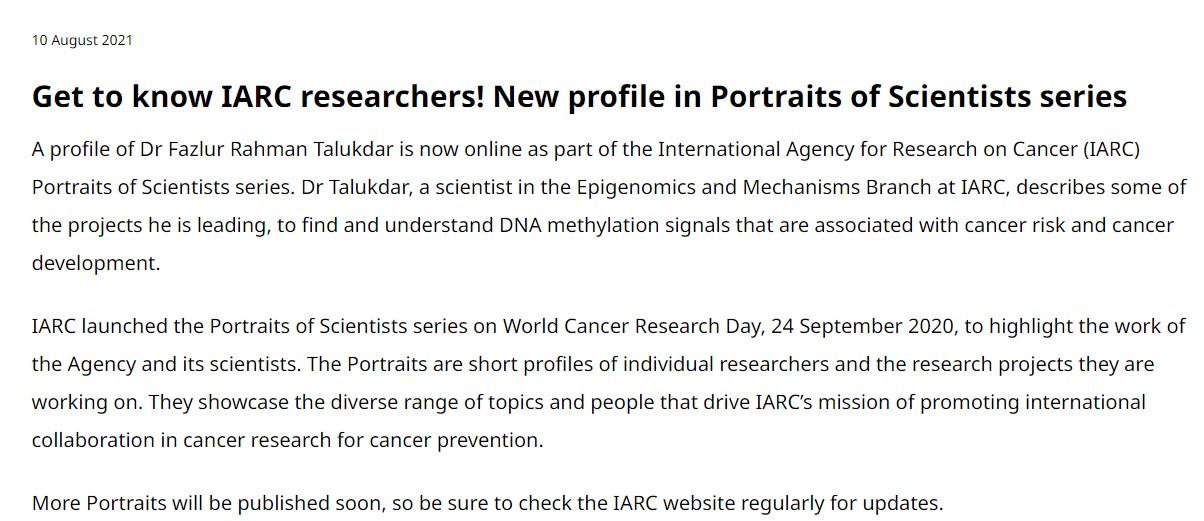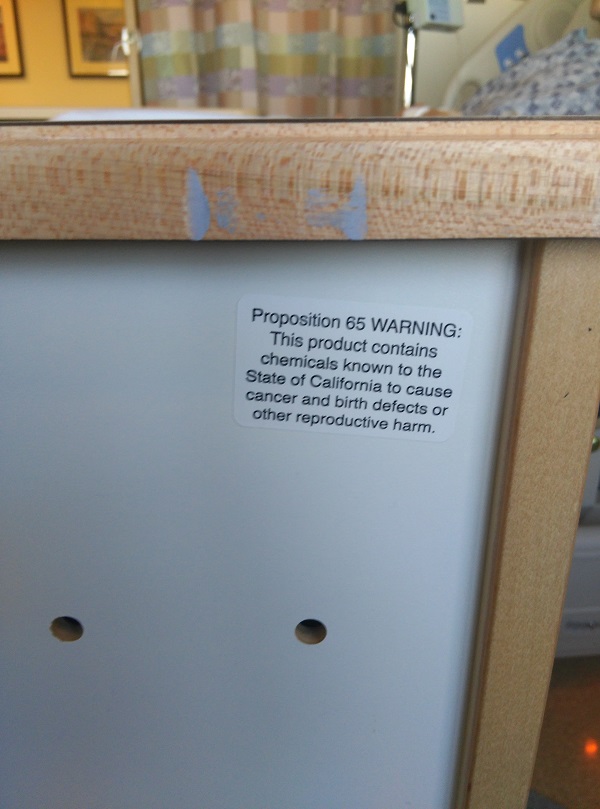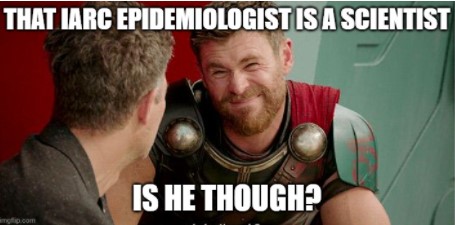They'd like to fix that, and to humanize their group they have created one of those 'get to know us' things. It's a fine publicity stunt but it does not mask the real problem; they do not want to inform public health, they no longer find carcinogens - they manufacture them.
This esteemed body was once so prestigious that California voters abdicated their own rights and declared that if IARC listed something as a possible carcinogen, it would automatically get a warning label slapped on it. Now they have 900 different compounds we are supposed to worry about. California is a running joke to the rest of the world because everything has a warning label. Walmart puts it on the entire building. Coffee? Yep.

A California doctor even sent me this, from their California oncology ward. A cancer warning on a white board in the one place patients are guaranteed to already have cancer. As if they don't have enough to worry about, they have to think about if pressboard causes cancer.

It doesn't.That's not science.
All IARC did was create a statistical correlation between people who are around or ate X and disease Y. It is easy to do, Harvard School of Public Health makes up something new every month. Food Frequency Questionnaires are almost always garbage masquerading as science. Anyone who looks at the health fads of acai berries and resveratrol knows that you can link anything to anything if you try.

But get enough of the same claims, even with confounders like that people keeping diaries do a terrible job, and epidemiologists can create weight of evidence from that pool, no differently than if astrologers combine enough papers by other astrologers and declare Virgos really are jerks.
Why IARC is not trusted - even by epidemiologists
The problem for IARC is that they began to let fifth columnists inside 12 years ago. Now they can't get rid of them because entrenched insiders control who gets invited.
Beginning in 2009, they gradually began to change the rules for inclusion on panels. You could no longer be on a panel if you were a "corporate" scientist. You could not even be on a panel if you had ever even consulted for a corporation.
This did two things; first, it excluded the best minds. Let's be honest, if a corporation has never tried to get you to consult, you are doing something obscure with no applied benefit, or you are not very good at your job. Second, it still allowed epidemiologists getting paid by lawyers or groups like Environmental Defense Fund. Those aren't even considered a conflict of interest - only companies are banned.
The problem IARC epidemiologists create is that the public won't trust epidemiologists about COVID-19 either
Find a prominent attorney in the US trying to sue over a chemical and you will find an IARC member as an expert witness. That seems fine, on the exterior, but if you pull back the facade of scientific legitimacy you find that these activists intentionally got placed on the panel even while they were promoting doubt about the world. One of them even had his 'nonprofit' exclusively funded by and housed in the law office where he got paid to be the expert witness. Epidemiologist Chris Portier was being paid off by an attorney while he was still supposedly doing science inside IARC, agreeing to testify against chemicals that IARC had not even written about yet.
Other epidemiologists know this. They may be more comfortable screaming "Republican!" at everyone who wonders about the point of taking a vaccine if masks are needed anyway, but to the public, epidemiologists are epidemiologists. They don't know that some Harvard food huckster or endocrine disruption crank is not the same as a disease epidemiologist, corporate journalists use "scientist" for both.
The public knows most of the claims they read about corporate media science are really only correlation - no science is involved. It is "exploratory" only, like claims using rodents or computer simulations and estimates.
This is why it is ridiculous for IARC to have a 'get to know a scientist' event. None of them have done anything the public would recognize as science; instead, they link cancer to various foods or chemicals using data others collected, and when that doesn't work they invoke broad claims of epigenetics.
They are statisticians, they are demographers, but they are not scientists.
IARC had a chance to fix that, I even wrote about great people who would salvage their reputation. Instead, they did what smart betters predicted and chose another insider to continue the same agenda - so inside she is literally married to one of the worst enablers they have.




Comments